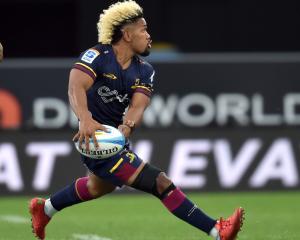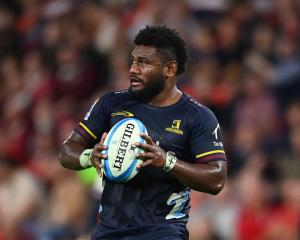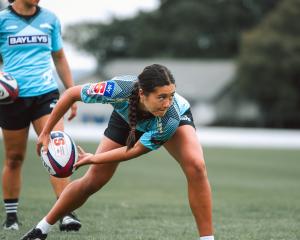
New Zealand Rugby is making progress in policing concussion and says there has been a major increase in detecting concussion on the field.
But ultimately judging concussion was a subjective process and the match doctor had the final say on who could and could not stay on the field.
The issue of concussion and whether players are able to stay on the field after a head knock came under the spotlight last weekend when Highlanders backs Malakai Fekitoa and Fletcher Smith were taken off the field for suspected concussion.
Both players have been named to play tonight, and some have questioned raised whether they were actually concussed.
New Zealand Rugby medical director Ian Murphy said there was a head injury assessment (HIA) process which had to followed at every professional game.
If players were knocked out cold during a match then they were judged to be concussed and players were removed. They did not even undergo testing — they were simply taken off, not to return.
When it was not so clear, players were taken to a room where they went through some more testing such as walking in a straight line or testing of eyesight.
The match doctor had jurisdiction only when the match was on and the matter was handed back to the franchise’s medical team at the end of the game.
Players were tested two hours after the game and then two days after the game against their baseline data, held by the franchise, which had been gathered at the start of the season. Testing determined whether the players could front the following week.
Murphy said match doctors and team doctors worked in close harmony and he could not recall an incident when the two did not work together.
In the end, the independent match doctor made the call and erred on the side of caution.
He did not want to comment on individual cases but said every case was different and concussion was difficult to judge.
Fekitoa may have looked all right last Saturday on the sideline after being hauled off but that did not reveal the total story.
"When he came out of the changing room he looked as bright as a button . . . he looked fine. But I can’t tell. He could have had a blinding headache, blurred vision. You just can’t tell by looking at him.
"Concussion is very intangible at times."
A study before the head injury assessment was introduced showed 56% of concussions on the field in the professional game were not detected and players continued in the game.
That had dropped to 4% at the last Rugby World Cup, in the United Kingdom in 2015.









